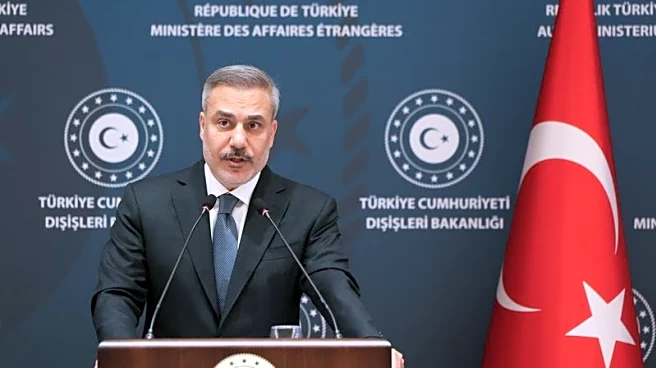What's Happening?
A UK law firm, Pogust Goodhead, is facing allegations of misleading claimants in two major lawsuits. The firm represents over 1.2 million claimants in the 'Dieselgate' class action against car manufacturers accused of falsifying emission tests. Additionally, Pogust Goodhead is involved in a £36 billion class action lawsuit against mining giant BHP, following the 2015 Fundão dam collapse in Brazil. Brazilian state prosecutors have filed a civil lawsuit against the firm, alleging that its contracts with Brazilian victims contained abusive clauses and imposed disproportionate penalties for withdrawal. The firm is also accused of misleading advertising and failing to provide clear information to claimants.
Why It's Important?
The allegations against Pogust Goodhead raise significant concerns about the ethics and practices of law firms involved in large-scale litigation, particularly those backed by litigation funders. These cases highlight the potential for financial backers to prioritize profits over the interests of claimants, potentially undermining the integrity of the legal process. The outcome of these lawsuits could impact the future of litigation funding and the ability of claimants to receive fair compensation. The accusations also underscore the challenges faced by international law firms in managing complex, cross-border legal disputes.
What's Next?
The second phase of the trial concerning the Brazilian dam disaster is scheduled for next year, focusing on damages. The ongoing legal proceedings will likely continue to attract scrutiny from legal experts and stakeholders, as they could set precedents for future class action lawsuits and the role of litigation funders. The outcomes may influence regulatory changes in litigation funding practices and the contractual obligations of law firms representing large groups of claimants.
Beyond the Headlines
The case against Pogust Goodhead highlights broader ethical and legal questions about the responsibilities of law firms in representing vulnerable claimants. It raises issues about transparency, fairness, and the potential exploitation of claimants by legal and financial entities. The situation also reflects the growing complexity of international legal disputes and the need for robust oversight to protect the interests of affected individuals.










